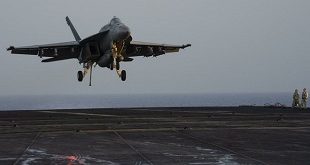“We expect in 2018 that we will be delivering more in terms of body armour, counter-IED material, trucks and even a hospital which will be built, we think, in Mali later this year,” an EU official said.
But missing from Friday’s conference agenda is one of the major destabilising factors in north Africa — the chaos in Libya, which plunged into chaos after the fall of dictator Moamer Kadhafi in 2011.
Rival militias, tribes and jihadists are vying for influence across the oil-rich country, with two rival administrations governing different parts of the territory.
“The Libyan crisis has been, we know, the detonator of the degradation of the security situation in the Sahel, and day after day, it contributes to its amplification,” said Niger President Mahamadou Issoufou, the current chair of the G5 Sahel group.
“We must put an end to this chaos by restoring the authority of the Libyan state to the whole of its territory.”
As well as EU leaders and the United Nations, around a dozen other countries will be represented by foreign ministers including Saudi Arabia, Norway, Morocco and Tunisia.
Donations to the G5 so far have been led by Saudi Arabia with 100 million euros, while the United Arab Emirates has given 30 million euros and the US $60 million.
Macron’s office said the fact so many countries were attending was “proof of the collective realisation of the Sahel’s importance for the stability of Africa and also Europe”.
France insists the G5 force is not an “exit strategy” for Operation Barkhane, its own anti-jihadist mission in the region.
France, the former colonial power in the area, intervened militarily in Mali in 2013 to help government forces drive al-Qaeda-linked jihadists out of the north.
Within two weeks, the Sunni radicals were flushed out of most urban areas but they continue to mount attacks from desert bases.
Violence spread from northern Mali to the centre and the south, and then spilt over into Burkina Faso and Niger.
 The Independent Uganda: You get the Truth we Pay the Price
The Independent Uganda: You get the Truth we Pay the Price


